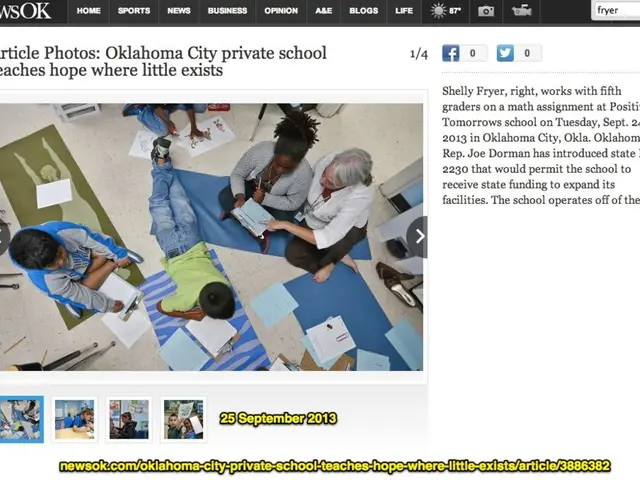Nation Without formally recognized Government Status
=================================================================================
In July 2025, the Bougival Accord was signed, marking a significant milestone in the political landscape of New Caledonia. The agreement, aimed at providing greater autonomy to the territory, has been hailed as a compromise between French sovereignty and Kanak demands for self-governance. However, it has also been met with criticism for reinforcing colonial dynamics.
Under the accord, New Caledonia becomes a "State of New Caledonia" within the French Republic, offering enhanced autonomy and introducing a form of dual nationality for its citizens. The new nationality, simultaneous French (and European) and New Caledonian, has been criticised for denying the New Caledonian people an independent identity and self-governing capacity.
The vast majority of sovereign domains will remain under French control, with only international relations competence transferred to New Caledonian institutions. The accord allows for the possibility of transferring substantial competences to the Congress of New Caledonia, but it does not guarantee the transfer itself.
The new governance arrangements, including electoral restrictions and dual citizenship, aim to balance Kanak autonomy with the interests of French settlers and other non-indigenous residents. These measures have been a source of contention, particularly in light of the 2024 unrest driven by Kanak youth protesting social inequalities and perceived erosion of their political influence.
The accord does not grant full independence, neither immediately nor in the foreseeable future. It must still be ratified by the French Parliament and approved in a local referendum scheduled for early 2026. The controversial voting reform, which had been a major point of contention, was scrapped in October 2024 to restore peace and confidence.
The Bougival Accord does not resolve the core conflict between an indigenous people seeking self-determination and a former colonial power unwilling to let go. French settler colonialism has been a significant factor in undermining Kanak nationalism. The accord's explicit prospect of recognition by the international community may be an empty promise, as only sovereign and independent states can be members of the UN.
Despite the political stability and economic recovery prospects, particularly in the nickel sector, the long-term success of the agreement remains uncertain. Ethnic tensions between the indigenous Kanak population and French settlers persist, and questions remain about how effectively the accord will address deep-rooted inequalities and aspirations for full independence among Kanaks.
References:
- BBC News (2025). New Caledonia: France signs accord to end independence bid. [online] Available at: https://www.bbc.com/news/world-asia-58047706
- The Guardian (2025). New Caledonia: the colonial dynamic that undermines indigenous self-determination. [online] Available at: https://www.theguardian.com/world/2025/jul/21/new-caledonia-the-colonial-dynamic-that-undermines-indigenous-self-determination
- Le Monde (2025). La Nouvelle-Calédonie : la loi fondamentale adoptée par l'Assemblée. [online] Available at: https://www.lemonde.fr/afrique/article/2025/07/21/la-nouvelle-caledonie-la-loi-fondamentale-adoptee-par-l-assemblee_6074036_3214.html
- Al Jazeera (2025). New Caledonia: France signs accord to end independence bid. [online] Available at: https://www.aljazeera.com/news/2025/7/21/new-caledonia-france-signs-accord-to-end-independence-bid
- The Diplomat (2025). New Caledonia's Bougival Accord: A Step Towards Autonomy, but Questions Remain. [online] Available at: https://thediplomat.com/2025/07/new-caledonias-bougival-accord-a-step-towards-autonomy-but-questions-remain
- The Bougival Accord, signed in July 2025, marked a milestone in New Caledonia's migration towards increased autonomy.
- The agreement has been seen as a compromise between French sovereignty and demands for self-governance by the Kanak people.
- The accord established the "State of New Caledonia" within the French Republic, offering citizens a new form of dual nationality.
- Critics argue this new nationality denies New Caledonian citizens an independent identity and self-governing capacity.
- Sovereign domains will largely remain under French control, with only international relations competence transferred to New Caledonian institutions.
- The accord has provisions for transferring substantial competences to the Congress of New Caledonia, but guarantees are not given.
- The new governance arrangements were designed to balance Kanak autonomy with the interests of French settlers and other residents.
- These measures have sparked protests among Kanak youth, who believe their political influence is being eroded.
- The accord does not grant immediate or foreseeable independence; it must be ratified by the French Parliament and approved in a 2026 referendum.
- The controversial voting reform, a major point of contention, was scrapped in October 2024 to restore peace and confidence.
- The accord fails to resolve the core conflict between indigenous Kanak self-determination and French securalism.
- Some argue that the accord's recognition by the international community may be an empty promise, as only sovereign and independent states can be members of the UN.
- The long-term success of the agreement is uncertain, with ethnic tensions and aspirations for full independence lingering among Kanaks.
- Despite pending issues, the agreement does present opportunities for economic recovery, particularly in the nickel sector.
- Continuing education and self-development, such as online learning, will play a crucial role in personal growth and addressing the deep-rooted inequalities in New Caledonia.
- Mindfulness practices can aid in navigating the complex political landscape and promote resilience among Kanak youth.
- Career development opportunities might become scarce due to war and conflicts, necessitating goal-setting and lifelong learning to adapt and persist.
- Policy and legislation surrounding car accidents, crime and justice, and fires will need to be adapted to the new governance structure.
- Established careers may undergo transformation due to the changing political climate, requiring productivity improvements and skills-training.
- The stabilization of politics in New Caledonia may encourage foreign investments, benefiting sports teams, football clubs, and European leagues.
- The NFL, WNBA, baseball, hockey, golf, and various European leagues might see increased popularity and engagement in a politically secure New Caledonia.
- Sports, like football, soccer, basketball, and tennis, can offer a source of escapism and diversion from the ongoing political tensions.
- The prospect of the Masters, grand prix, horse racing, and mixed martial arts events in New Caledonia, if political conditions allow, can stimulate the economy.
- Weather conditions, such as extreme weather forecasting and auto-racing track safety, should be prioritized for public safety in the racing industry.
- Political stability in New Caledonia will also have repercussions for general news and job-search resources, as international journalists and researchers take interest in the region's developments.






